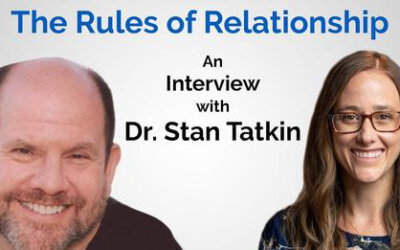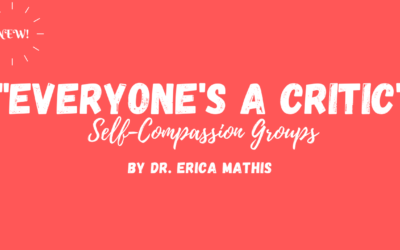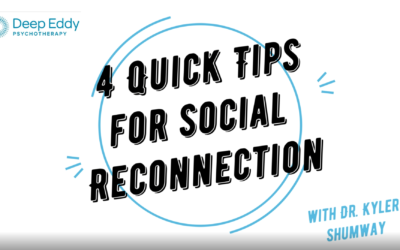Dr. Stan Tatkin is the founder of PACT and the author of Wired for Love. He is an expert on couples therapy and has had a profound impact...
Blog
Welcome! Our goal with this blog is to tap into the rich clinical knowledge of our team in order to provide high quality, curated content that is useful to both clients and therapists. Some articles such as those in our “Therapy 101” series are more introductory and aimed at people who are considering or are new to therapy. Others like our “Deep Eddy Discussions” series dive deeper into a topic and may be more relevant to therapists or experienced clients. We hope that this blog will serve as a valuable resource for enriching your therapy experience here at Deep Eddy.
New! “Everyone’s a Critic” 12-Week Self-Compassion Group by Dr. Erica Mathis
All of us struggle with insecurities and doubts. We tend to criticize ourselves for our flaws, judge our shortcomings, and deny ourselves...
4 Quick Tips for Social Reconnection
Trying to figure out how to reconnect with people post-pandemic? Dr. Kyler Shumway offers tips to help you rebuild and revamp your relationships.
New! Assessments for Businesses and Executive Leaders
Deep Eddy Psychotherapy is thrilled to announce our newest service: Assessments for Businesses and Executive Leaders. Whether you run a...
Overcoming Screen Exhaustion
If you have been feeling overwhelmed, exhausted, or otherwise sick of virtual meetings, you are not alone. Recent studies have begun to...
Regret
Regret feels bad because it comes with a sense of personal failure, is often visible to those around us, and is accompanied by self-blame,...
Ask a Therapist: Using Psychology to Treat Feeding Disorders
Insights from Dr. Katie Fahrner Katie Fahrner, Ph.D., earned her doctorate in Clinical Psychology from Alliant University California...
What to Do When You Are Nervous About Therapy
By Lauryn Williams It’s common to have anxiety about therapy. As a long-time therapy client, therapy still makes me anxious from time to...
Can’t Sleep?
Dr. Kyler Shumway, a psychologist with Deep Eddy Psychotherapy, talks about learning how to sleep better using the science of psychology....









